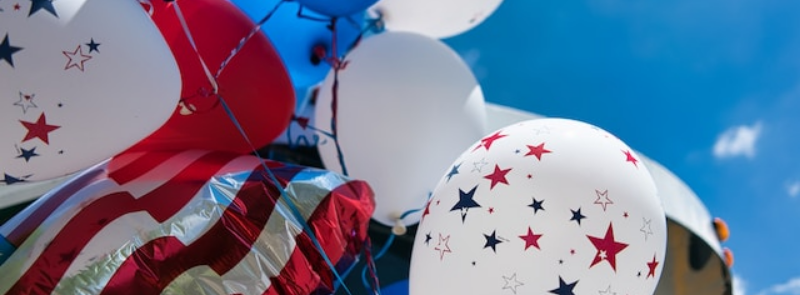
When It Occurs
Every July 4th
Timeline
Days Passed (964)
# Hashtags
#IndependenceDay #HappyFourthOfJuly
Independence Day, commonly known as the Fourth of July or July 4, has held federal holiday status in the United States since 1941. The celebration is marked by spectacular fireworks displays and expansive outdoor events featuring parades and barbecues nationwide. Rooted in the 18th century and the American Revolution, these traditions have endured. While the original political context has faded, the significance of the United States Independence Day endures as a powerful symbol of patriotism.
History and Background
- Declaration of Independence: The Declaration of Independence was drafted by Thomas Jefferson and adopted by the Continental Congress on July 4, 1776. This document declared the 13 American colonies' independence from Great Britain, stating their right to self-governance.
- Establishment as a Holiday: Independence Day was celebrated informally from the early years of the United States. It became a federal holiday in 1870, and in 1938, Congress reaffirmed it as a paid holiday for federal employees.
Objectives
The primary objectives of Independence Day are:
- Celebrate National Independence: Commemorate the United States' declaration of independence from British rule.
- Honor American History and Heritage: Reflect on the nation's history, values, and the struggles for freedom and democracy.
- Foster Patriotism: Encourage patriotic displays and celebrations that promote unity and national pride.
Traditions and Celebrations
Independence Day is marked by various traditions and celebrations that reflect the patriotic spirit of the holiday:
- Fireworks: Fireworks displays are a central part of Independence Day celebrations, symbolizing the "rockets' red glare" from "The Star-Spangled Banner."
- Parades: Many towns and cities host parades featuring marching bands, floats, military units, and local organizations.
- Barbecues and Picnics: Families and friends gather for outdoor barbecues, picnics, and potlucks, enjoying traditional American foods like hamburgers, hot dogs, and apple pie.
- Concerts and Festivals: Concerts, music festivals, and patriotic performances are held in parks and public spaces.
- Flag Display: American flags are prominently displayed on homes, buildings, and public spaces to show national pride.
- Patriotic Speeches and Ceremonies: Government officials and community leaders give speeches and hold ceremonies to honor the nation's history and its veterans.
- Sporting Events: Baseball games and other sports events are popular on Independence Day, often featuring special ceremonies and fireworks.
How to Celebrate
- Attend Fireworks Shows: Watch a local or televised fireworks display to enjoy the colorful celebration of independence.
- Participate in Parades: Join or watch a parade to experience community spirit and patriotic displays.
- Host or Attend Barbecues: Gather with family and friends for a barbecue or picnic, enjoying traditional American foods.
- Display the Flag: Fly the American flag at your home or wear patriotic clothing to show your national pride.
- Listen to Patriotic Music: Enjoy patriotic songs like "The Star-Spangled Banner," "America the Beautiful," and "God Bless America."
- Learn American History: Take time to read about the Declaration of Independence, the Founding Fathers, and the history of the United States.
- Volunteer: Participate in community service activities or support veterans' organizations to honor those who have served the country.
Significance of Independence Day
Independence Day is significant because it marks the birth of the United States as an independent nation. It celebrates the principles of freedom, democracy, and the pursuit of happiness that are foundational to American identity. The day serves as a reminder of the struggles and sacrifices made to achieve independence and the ongoing commitment to uphold the values enshrined in the Declaration of Independence.
The holiday fosters a sense of national unity and pride, bringing people together to celebrate their shared heritage and the freedoms they enjoy. Through various traditions and activities, Independence Day highlights the importance of civic engagement, community, and the enduring spirit of patriotism in the United States.


